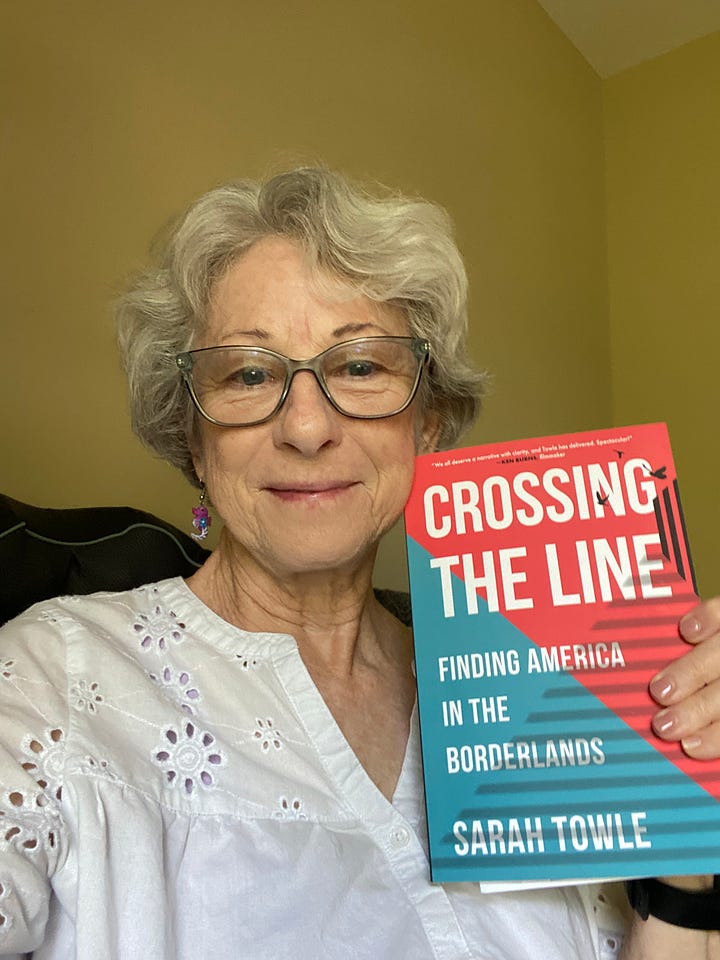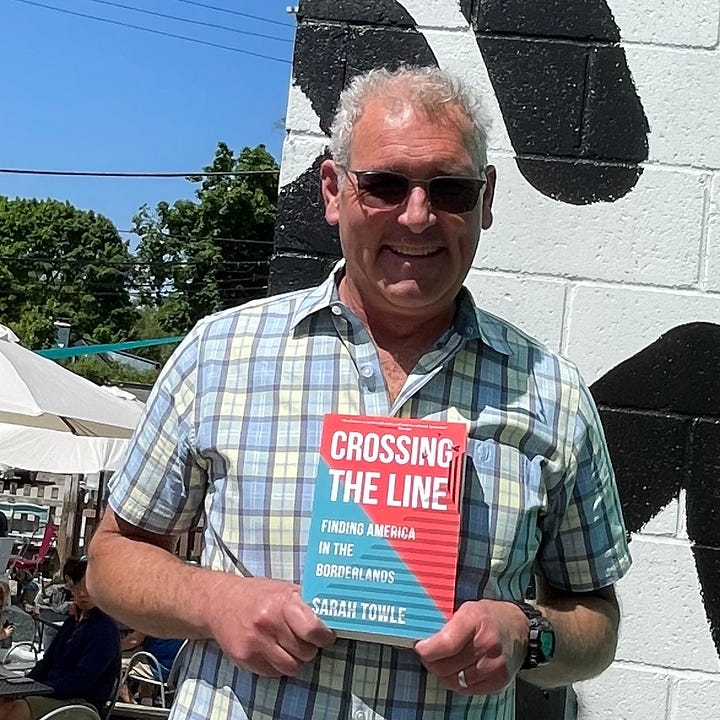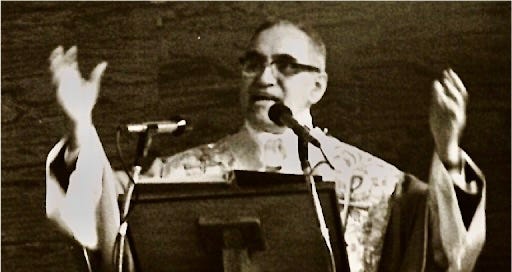Six years ago today began a week I will never not remember…
On Memorial Day Monday, 2018, my daughter graduated from Brown University. What a beautiful, glorious, hopeful day it was! My husband and I proudly joined the joyful, peaceful scrum of parents to celebrate our children’s passage into adulthood. We acknowledged their past accomplishments. We toasted their new beginnings. Sting, there to receive an honorary doctorate, captured the energy in a song.
The following Wednesday, my mother suffered a massive stroke, propelling my birth family into a complex mixture of panic and denial, conjuring buried hurts that opened up old wounds and inflicted new ones, besides. Some still fester today, I’m sad to say. Others, fortunately, have finally healed. It marked a different kind of beginning: my mother’s passage to the other side and the shuffling of kinship ties that had been part of the fabric of me for over fifty years.
With my daughter spreading wings and flying into the future and my mother slipping away, I felt “middle-aged” for the first time, ever. The week before, I felt forever thirty-three. Suddenly, I was forced to acknowledge life’s relentless one-way direction.
Then, by week’s end, a US Department of Justice attorney general, former Senator, and so-called Christian fundamentalist announced to the world that to him—and the president he served—“justice” meant tearing some families asunder, while plunging others into homelessness and peril in some of the most dangerous places on earth.
The proclamation sent me on an odyssey unforetold: that is when my journey to understand, and ultimately unmask, the hypocrisies and horrors of the US immigration system began. Since then, I’ve been immersed in a dystopian reality where Joseph Conrad’s Heart of Darkness crashes into
’s Wild, except in my story-world the mother-daughter relationship explored is metaphorical: a struggle between me and the nation of my birth.I should have known better. But I didn’t. Let me explain…
My flight into adulthood took place just as the US Dirty War era upended life in El Salvador, sending shockwaves through the Catholic community and home of my youth. On March 24, 1980, as I was about to graduate from high school, Archbishop Oscar Romero was felled by an assassin’s bullet.
In a sermon broadcast the day before, Romero rebuked the US government for backing El Salvador’s military junta. He denounced the death squads then menacing the Salvadoran population. He spoke directly to them: “I implore you, I beg you, I order you,” he shouted. “Stop the repression!”
The next day, a red Volkswagen Passat pulled up in front of the Carmelite chapel of San Salvador’s Hospital de la Divina Providencia, where the Archbishop was celebrating Mass. A bearded stranger stepped out of the vehicle gripping a rifle. He lifted it, steadied it, then sent a single .22-caliber bullet right into Romero’s heart.
I remember the news piercing my heart. These things simply didn’t happen to the Church leadership.
Archbishop Romero’s assassination put El Salvador on the map for me. A year later, on the anniversary of the monsignor’s death, I was in DC, protesting US involvement in the escalating war there. Ronald Reagan lied to our faces, just as he lied to Congress. He maintained that his administration’s hands were clean even as the truth trickled north thanks to intrepid journalists on the ground;1 even as refugees from El Salvador as well as the Guatemalan genocide fled across the US southern border.
Throughout my 20s, I was part of a nationwide network of welcome. I worked with newcomers from Central America, as well as from Haiti and the former Soviet Union. All had traveled to Reagan’s so-called Beacon of Hope to escape violence and brutality—much of which his policies caused, or worsened. When I wasn’t in New York providing English language instruction to these “new Americans,” I was in El Salvador teaching Spanish in open-air countryside classrooms of the war zone—part of a grassroots literacy campaign inspired by Brazilian popular educator Paolo Freire to keep children learning even under bombardment.
Then, the 1990s brought a Democrat back into the White House. And as Bill Clinton promised peace in Central America, I was recruited to help develop a nationwide English language and literacy program in China. There, on the other side of the globe, just before the advent of the Internet (at least as far as the People’s Republic was concerned), I took my eye off the Central American story. My wings spread and I flew into adulthood, a new marriage, and a career as an international educator. Then came the gift of motherhood. My life was full and happy, even if circumscribed by immediate, daily pressures as I struggled to find that ever-elusive work-life balance. I focused on making a mark today to leave a legacy tomorrow.
In 2008, then living in Paris, hope and change seemed ascendant; confirmation that progress was, indeed, on its way. That humankind could be better.
But I was mistaken. Many of us were. Even after relocating to London, I didn’t see Brexit coming. I saw Trump coming, but having spent the ‘80s in New York City and knowing him to be a monster, I refused to believe that enough US voters would be sufficiently dupped into granting him the nation’s top job.
I certainly never imagined that, as the leader of the free world, he would greenlight the act of tearing families apart.
Only when he and his minions forced my gaze to snap back to my homeland, did I see what had grown up all around me, hiding in plain sight just beneath my privileged view from the Reagan ‘80s: the US deterrence to detention to deportation machine that politicians love to decry as “broken” but which is working just fine for the demagogues and profiteers making bank off human misery.
If I, a refugee advocate and educator, a defender of universal human rights, and a migrant—though by choice and advantage—had failed to perceive it, then others surely missed the evolution of the many-headed Hydra in their midst as well. I resolved to bring this epiphany to you, dear reader, because I truly believe if you also knew, you’d be outraged, too.
Crossing the Line: Finding America in the Borderlands is the chronicle of that journey of awakening sparked six years ago this week in memory of my mother and father, both of whom have now moved on.


Are you in or near San Francisco?
If so, please join me,
of She Writes Press, and Camilo Perez-Bustillo of the National Lawyers Guild Bay Area for the official graduation and send-off of Crossing the Line: Finding America in the Borderlands at Medicine for Nightmares Bookstore and Gallery in the Mission. RSVP here!For information about book launch events in Seattle, Los Angeles, Ann Arbor, and Washington, DC…
Click here. And stay tuned for more event announcements to come in New York, Pennsylvania, Tennessee, Louisiana, Texas, and Arizona.
If you’d like to help host an event near you…
Comment below or reach out to me here.
It’s time to marry your outrage with mine and grow a large, loud chorus singing to the rooftops in full-throated harmony: It’s time to stop the Trump train for good. Join me!
Hat tip to Raymond Bonner and Alma Guillermoprieto, correspondents for the New York Times and Washington Post, respectively. Their coverage of the US Dirty Wars included the December 1981 massacre in El Mozote, El Salvador when roughly 900 men, women, and child non-combatants were slaughtered by the US-trained Atlácatl Battalion. The story of the carnage, replete with photographic evidence and survivor testimony, ran the day before Reagan swore to Congress that the Salvadoran military had been reined in and would henceforth comply with internationally recognized human rights conventions. Reagan discredited Bonner and Guillermoprieto, calling their reportage “fake news.” Military funding went through at a rate of $1 million a day throughout the 1980s, eventually totaling $6 billion, though human rights abuses never stopped.





Nice job SARAH. You speak the truth, girl. Good luck with the book signing.